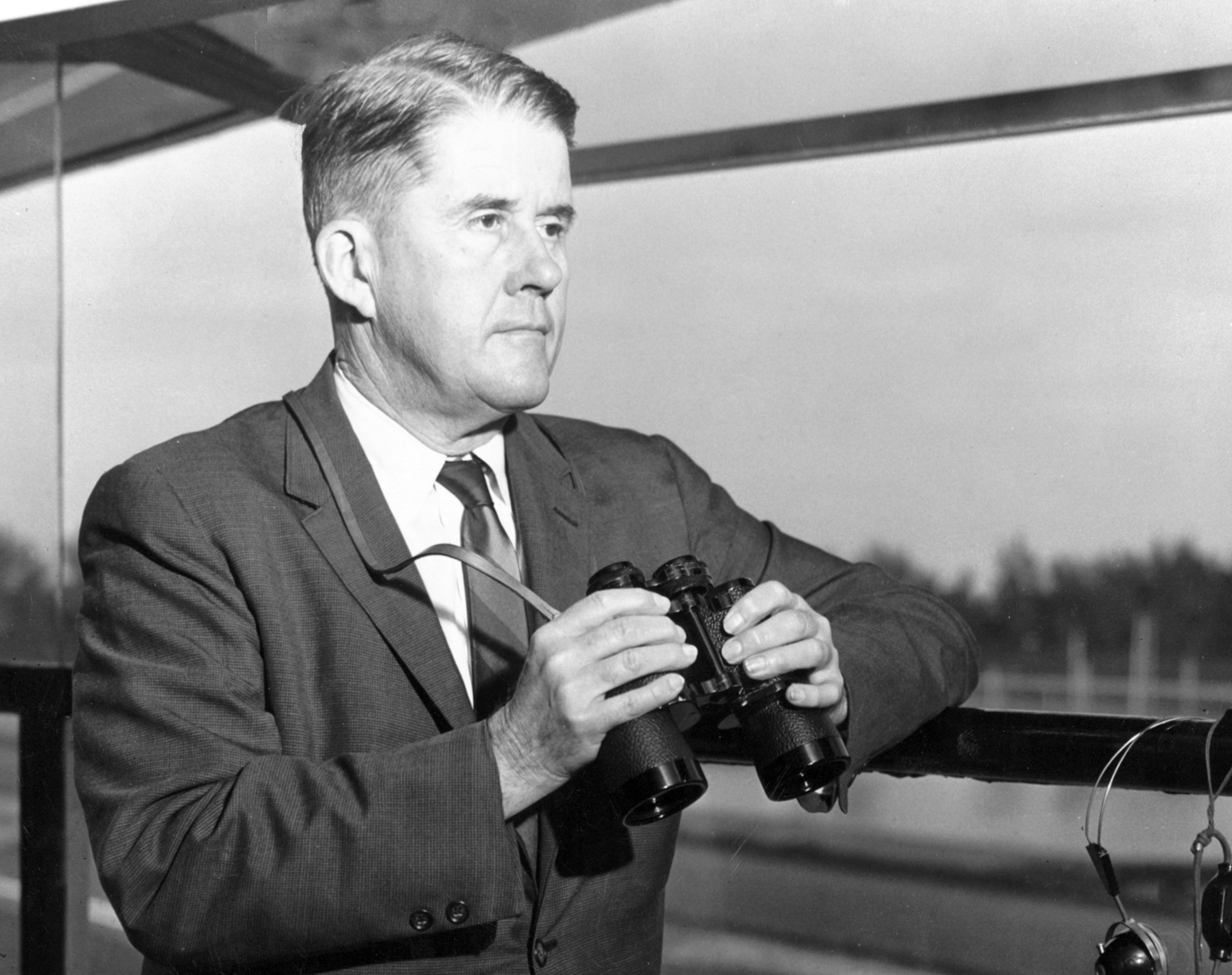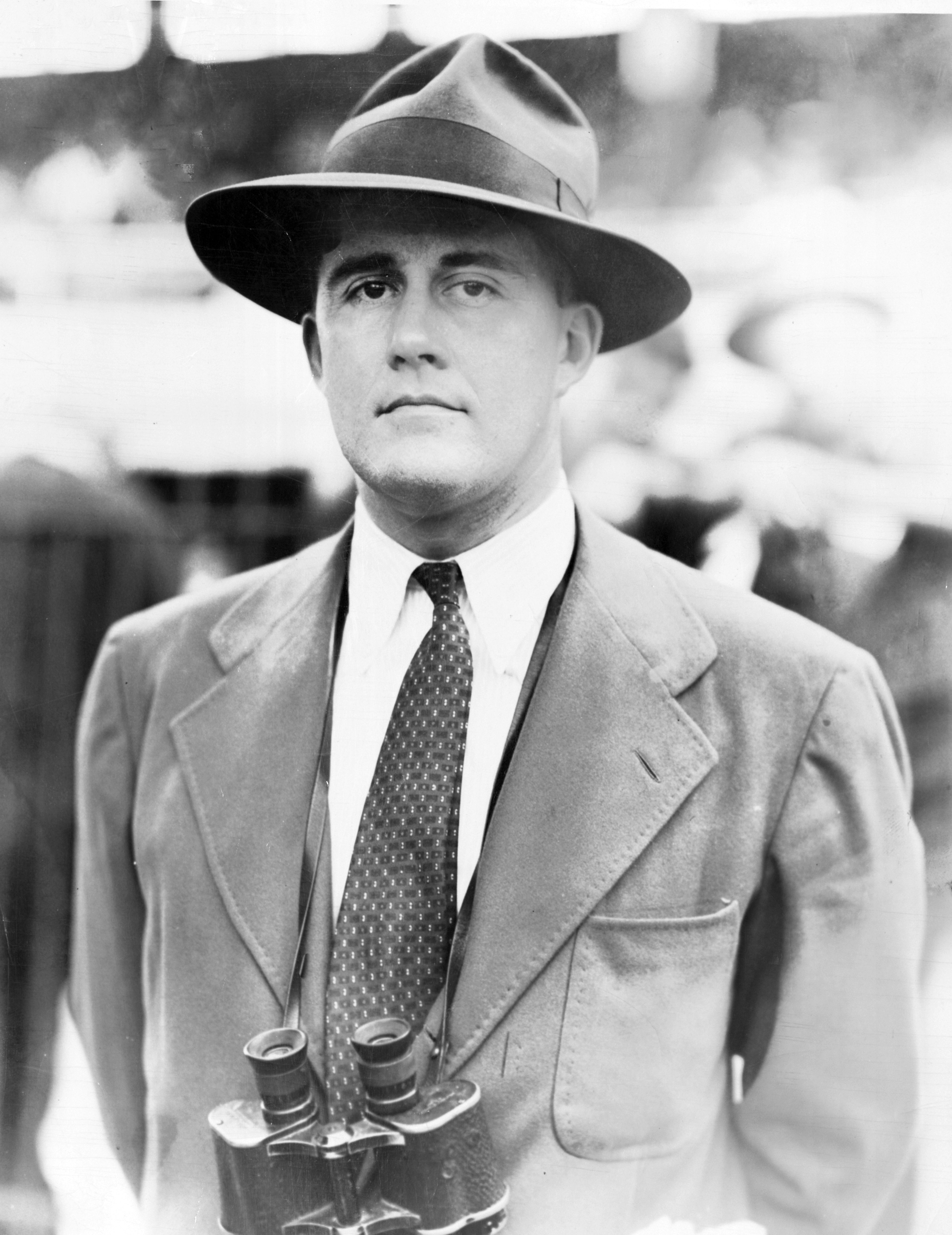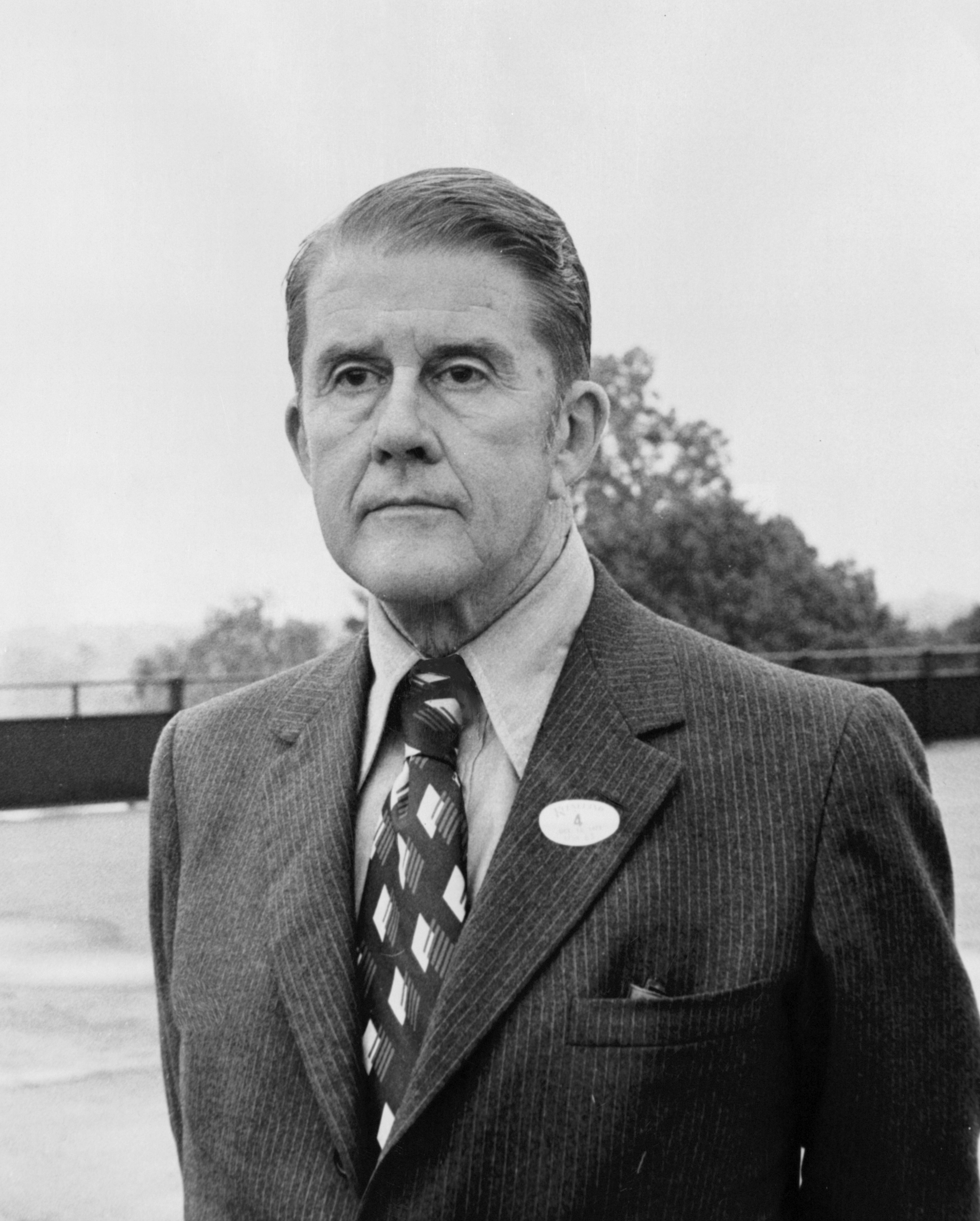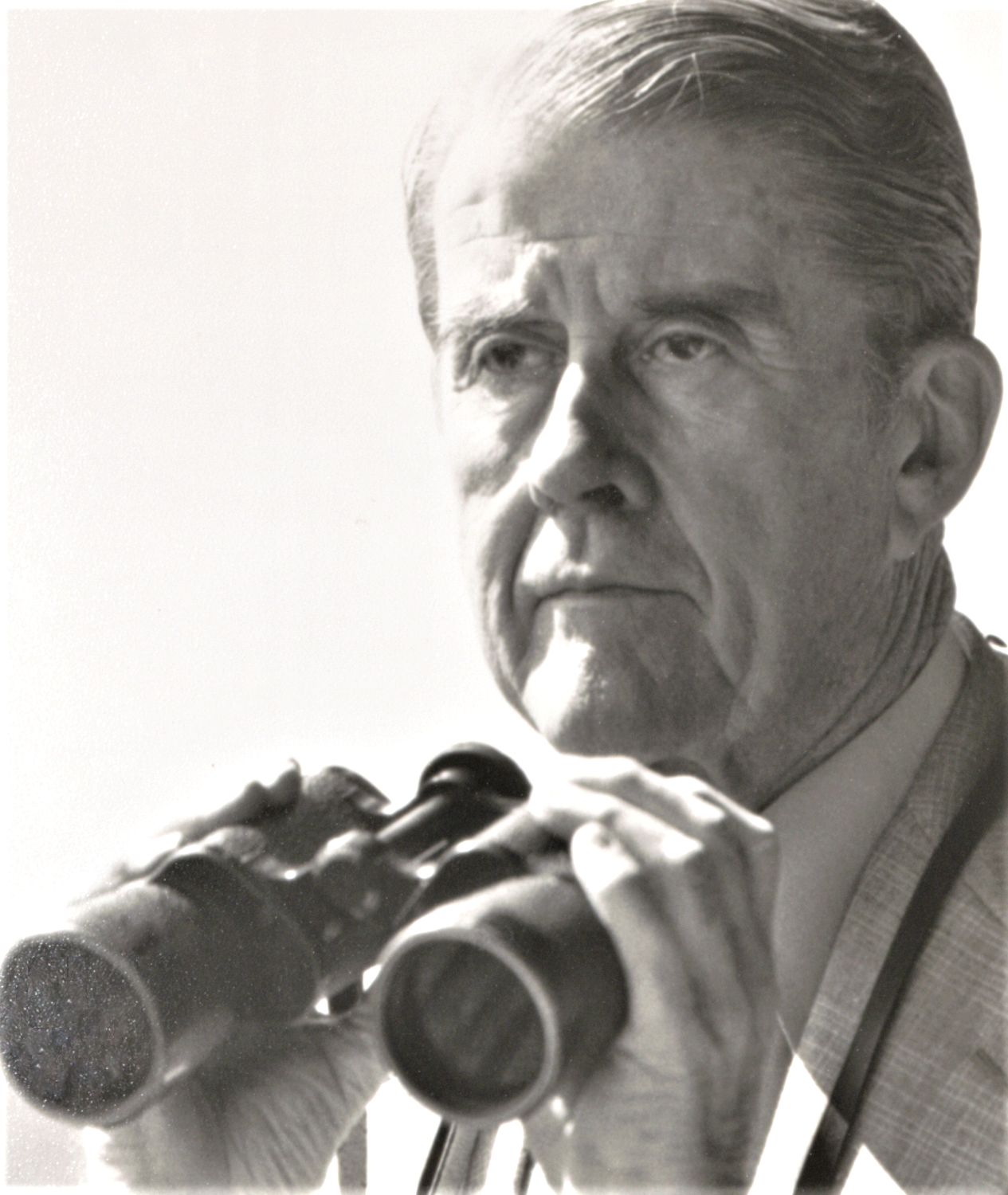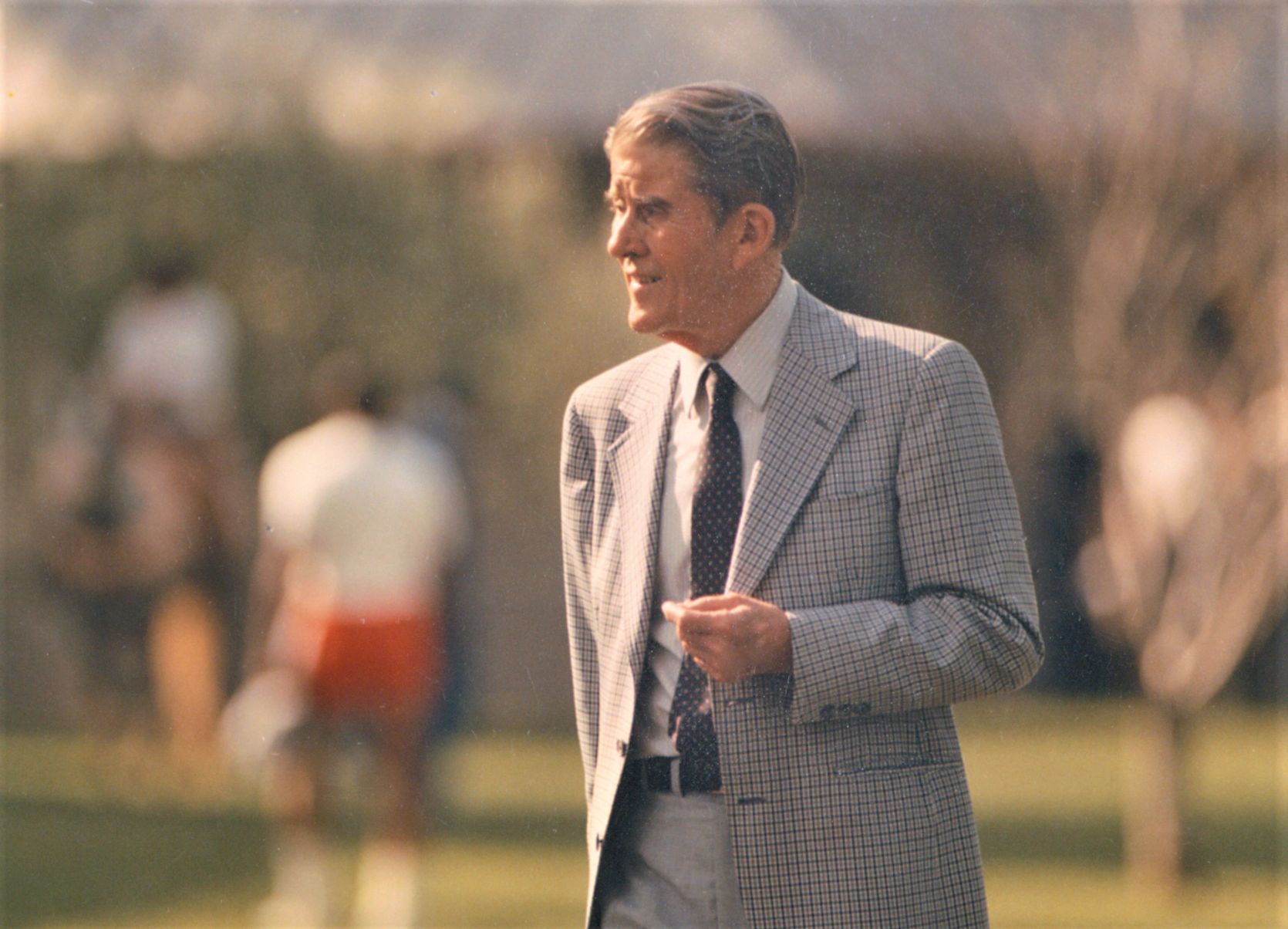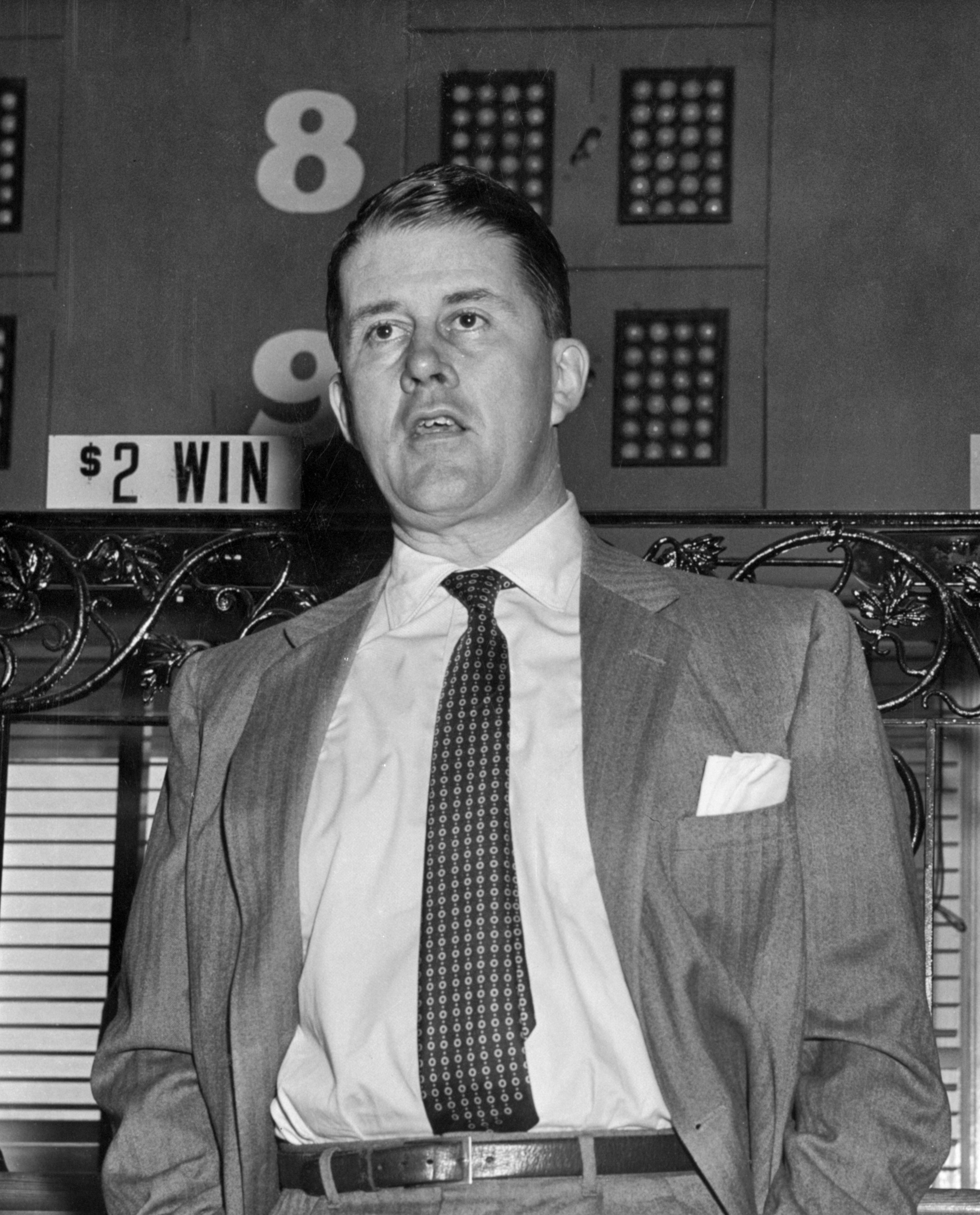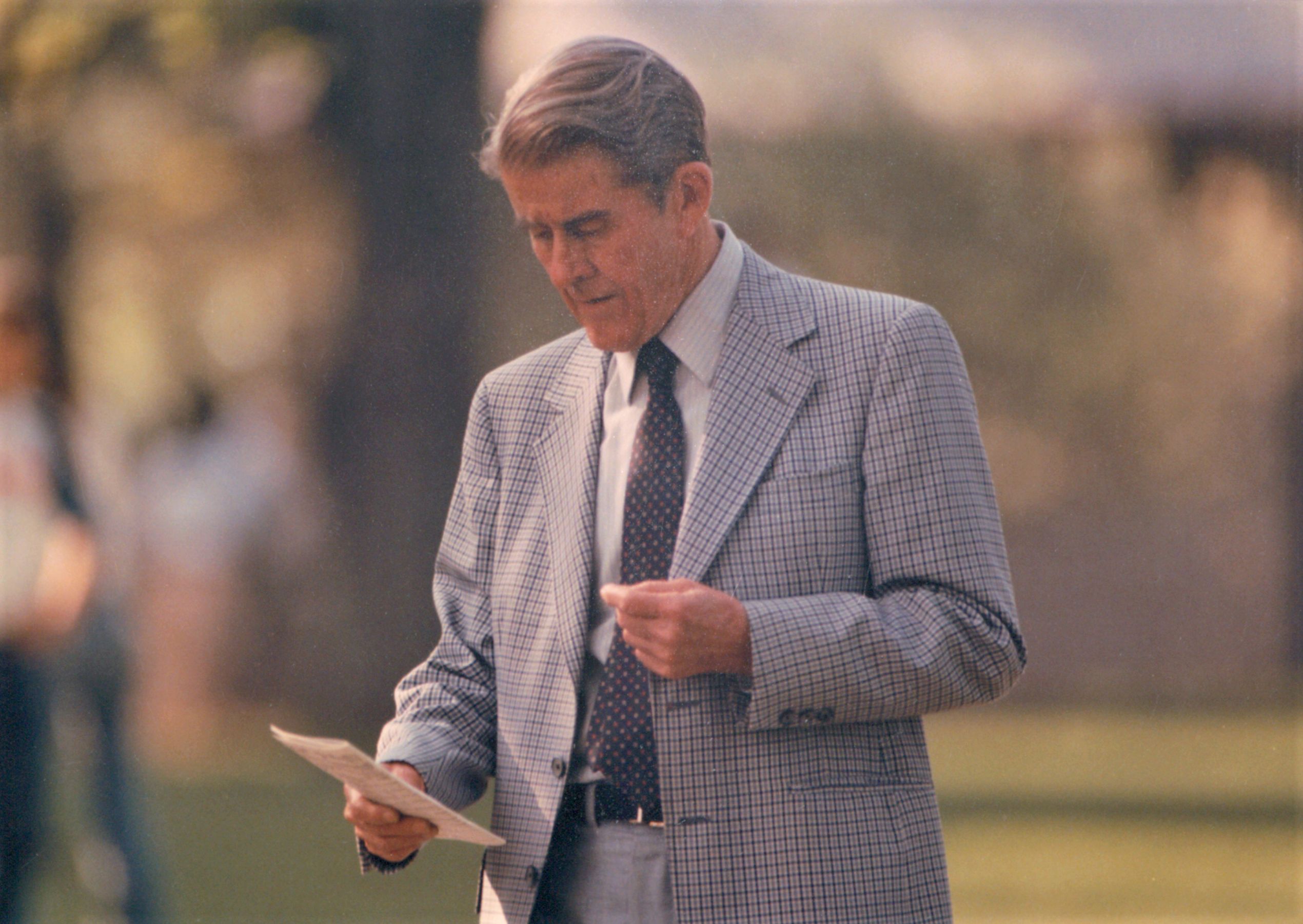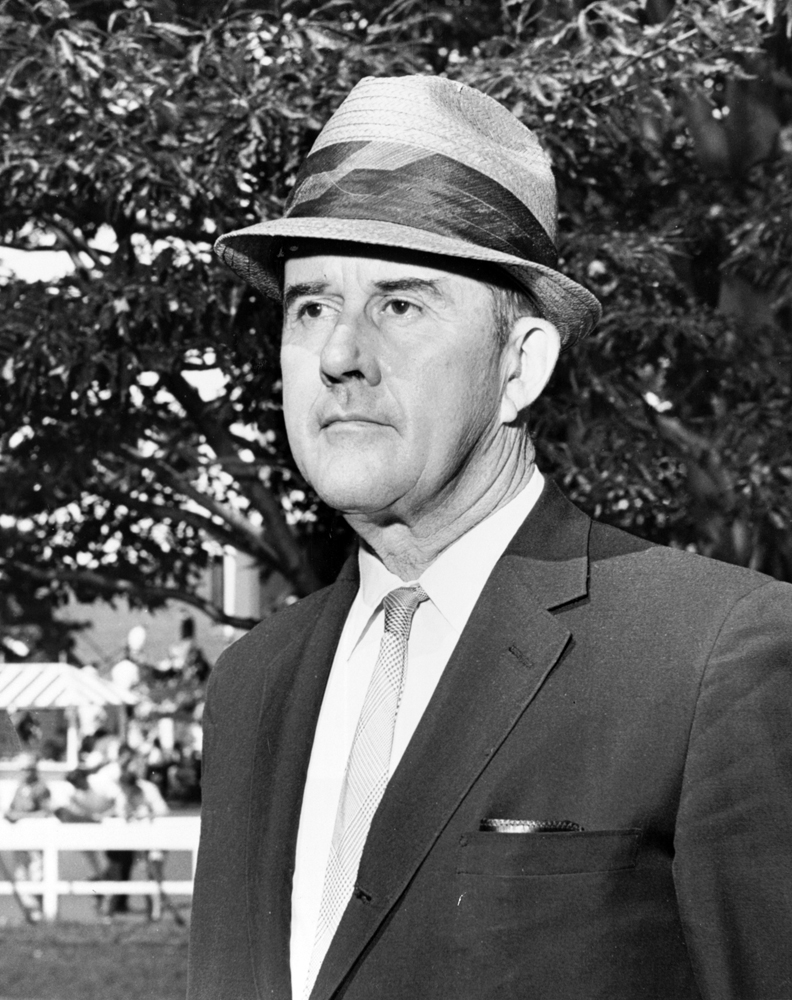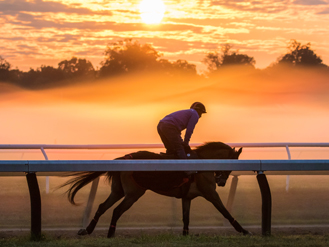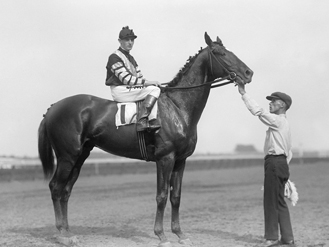J. Keene Daingerfield, Jr.
Referred to as the “dean of North American racing officials” in his 1993 obituary in The BloodHorse, J. Keene Daingerfield, Jr. was also lauded by the publication for his traits of “integrity, dignity, and commitment.” That type of sentiment was universal when it came to Daingerfield, one of the most respected and influential figures in American racing during the 20th century.
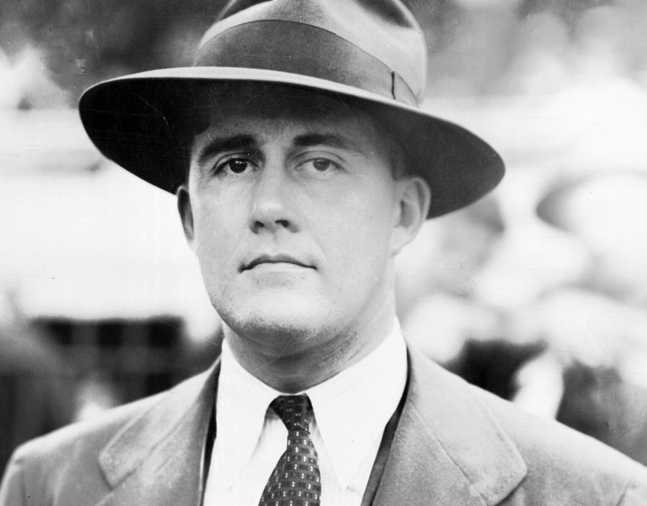
2020
Dec. 12, 1910, Lexington, Kentucky
Sept. 1, 1993, Lexington, Kentucky
Biography
Referred to as the “dean of North American racing officials” in his 1993 obituary in The BloodHorse, J. Keene Daingerfield, Jr. was also lauded by the publication for his traits of “integrity, dignity, and commitment.” That type of sentiment was universal when it came to Daingerfield, one of the most respected and influential figures in American racing during the 20th century.
Born in 1910 in Lexington, Kentucky, Daingerfield was the son of a Bluegrass attorney. Although his father was not involved in racing, other family members were prominent in the sport. Daingerfield’s grandfather, Maj. Foxhall Daingerfield, managed Castleton Farm and was the brother-in-law of that farm’s legendary owner, Hall of Fame member James R. Keene. Daingerfield was also the nephew of Algernon Daingerfield, executive secretary of The Jockey Cub and a racing steward in New York. His aunt, Elizabeth Daingerfield, owned Haylands Farm and managed Sam Riddle’s Faraway Farm, where she oversaw the stud career of Hall of Famer Man o’ War.
Daingerfield seemed set on following his father’s path and becoming a lawyer. He attended the University of Virginia for three years but decided to return to Kentucky in favor of pursuing a career in racing. Daingerfield took out a trainer’s license in 1934 and had moderate success. He saddled his first stakes winner in 1936 and a half-dozen years later authored a book about conditioning racehorses titled “Training for Fun and Profit (Maybe).” Daingerfield then had a stint with the U.S. Army Corps of Engineers in World War II. Following the war, he returned to training and enjoyed success with a horse named George Gains, who won five stakes from 1947 through 1948.
While stabled at Narragansett Park in Rhode Island in 1948, Daingerfield made the transition from trainer to racing steward. Daingerfield later said he “thought I could become a top racing official and rather doubted that I would become a top trainer.” In a separate interview Daingerfield said he “never really had very good horses to work with and was actually conceited enough then to think I did fairly well with inferior horses.”
Daingerfield went on to be the chief state steward in Illinois from 1953 through 1956 and held the same position in New Jersey (1966 through 1973) and Kentucky (1973 through 1985). He was also an association steward at 17 racetracks (Arlington Park, Washington Park, Atlantic City Race Course, Beulah Park, Detroit Fair Grounds, New Orleans Fair Grounds, Garden State Park, Churchill Downs, Hialeah Park, Ingleside Racetrack, Keeneland Race Course, Liberty Bell Park, Monmouth Park, Narragansett, Pimlico Race Course, River Downs, and Raceway Park, a harness track in Toledo, Ohio).
Following his retirement as Kentucky’s chief steward in 1985, Daingerfield continued to serve as a steward at Keeneland Race Course until 1989, when he retired for good after 41 years as a steward.
The sport bestowed many honors upon Daingerfield. He was presented with the Eclipse Award of Merit in 1985 and was elected to The Jockey Club in 1989. Among the many other recognitions Daingerfield received were the William C. Coman Humanitarian Award by the Kentucky Thoroughbred Owners and Breeders Association and the Joe Palmer Award by the National Turf Writers Association.
The job of a steward can be a stressful one with controversial and difficult decisions standard fare for the position. One of the most significant of Daingerfield’s career was Dr. Fager’s disqualification in the 1967 Jersey Derby.
“The deliberations were lengthy,” Daingerfield said. “I suppose all three of us (stewards) knew we had to disqualify (Dr. Fager), but we were trying to find some way not to do it.”
That decision and countless others that did not receive such notable attention were always handled with unwavering professionalism by Daingerfield, who was described by The Thoroughbred Times as “a man of quiet dignity” who “had by inheritance and proclivity a judicial temperament, an ability to see both sides of a question raised by advocates who see but one side.”
Achievements
Eclipse Award of Merit — 1985
Media
